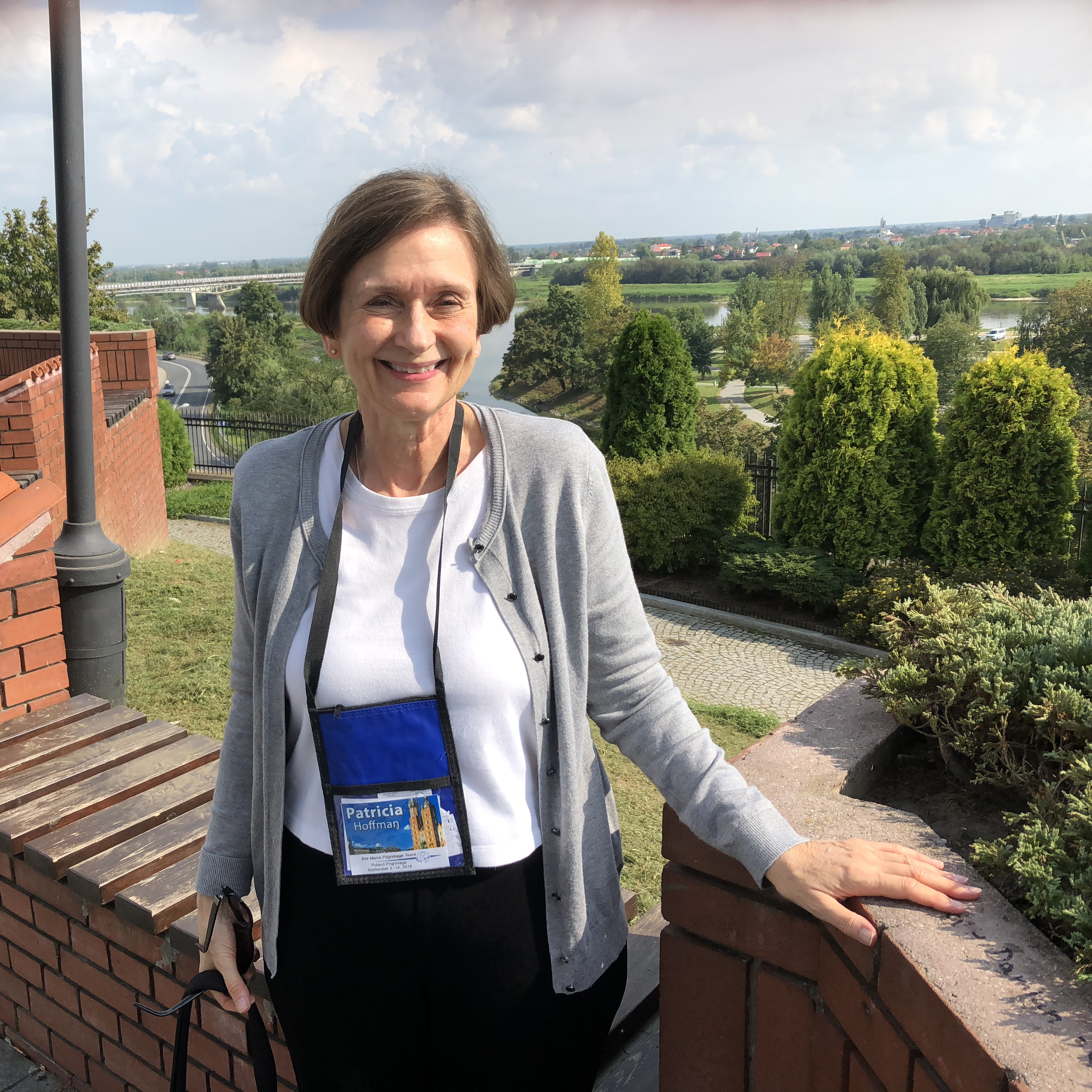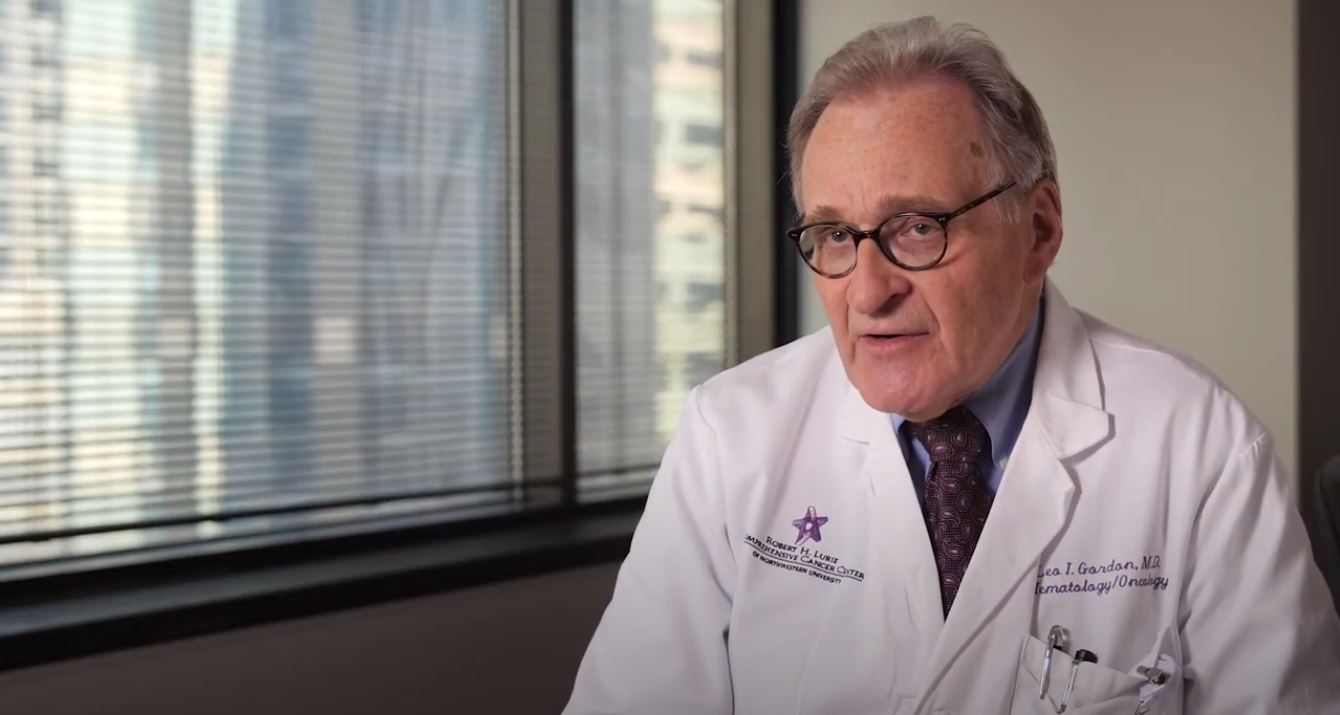Cancer Survivor Supports Her Physician's Research Through Estate and Outright Gifts

Patricia Hoffman had never been sick a day in her life. She never thought she would get involved in research either, or be able to give back philanthropically. But, as she said, “life will throw you surprises.”
In 2002, Ms. Hoffman was diagnosed with non-Hodgkin lymphoma, a cancer that starts in the white blood cells of the immune system. A longtime Chicagoland resident, she knew she wanted to be treated at Northwestern, where both of her parents had received excellent, efficient care. When she called the office of Leo Gordon, MD, at the Robert H. Lurie Comprehensive Cancer Center of Northwestern University, they promised to squeeze her in the very next day.
Ms. Hoffman experienced ups and downs in the years that followed, but her admiration for Dr. Gordon never faltered. “He is a wonderful clinician—the compassionate, knowledgeable, and take-charge kind of person you want to have on your side under those circumstances.”
Ms. Hoffman learned over time that Dr. Gordon is also a prolific researcher, bringing discoveries from the lab to patients with lymphoma worldwide. On faculty at Northwestern University Feinberg School of Medicine for more than 40 years, he serves as the Abby and John Friend Professor of Oncology Research.
Under Dr. Gordon’s care, Ms. Hoffman’s treatment began with watchful waiting—also known as surveillance—until her lymphoma started to accelerate. She participated in clinical trials but none led to the results Dr. Gordon wanted to see. Then, in 2010, he suggested Ms. Hoffman receive an injection of an immunotherapy drug that delivers radiation directly to cancer cells without damaging healthy tissue. Dr. Gordon had been among the investigators who tested the safety and efficacy of this innovative therapy. The strategy worked.
“Dr. Gordon saved my life, and that is not an exaggeration,” said Ms. Hoffman, whose lymphoma is in remission today.
Thinking of Future Patients
“When you’re first diagnosed with cancer, you’re so concerned for your future: Will I have one? What will it be like?” Ms. Hoffman explained. “But as my situation stabilized—not just my cancer, but also my attitude—I became so comfortable with the treatment that I was receiving from Dr. Gordon and his team, and I started wondering if there was something I could do to contribute to his work.”
After her mother, Phyllis, passed away, Ms. Hoffman needed to amend her estate plan and decided to support hematological research at Northwestern led by Dr. Gordon or his eventual successor. She knew that’s what Phyllis—a big fan of Dr. Gordon—would have wanted, too. Ms. Hoffman added Northwestern as a beneficiary of her trust and retirement plan.
When she turned 70½ years old, Ms. Hoffman also started making outright gifts through her IRA to satisfy the required minimum distribution. This option is known as a qualified charitable distribution or IRA charitable rollover. By giving directly to Northwestern and Dr. Gordon’s work through her IRA, she doesn’t have to pay taxes on the income.
“It’s a wonderful feeling to make these gifts. I have benefited so much from Dr. Gordon’s care and the research that came before me, and I want to pay it forward,” shared Ms. Hoffman, a retired corporate attorney. “I have had an amazing life in spite of lymphoma. We all have our burdens, but I was able to travel and work and be there for my mom. You can’t put a price tag on those things.”

Dr. Gordon is part of a large team at Lurie Cancer Center conducting research spanning from basic science studies examining the underlying mechanisms of disease to clinical trials testing the newest treatments. The center’s clinical care, provided through Northwestern Memorial Hospital, is No. 6 in the nation—No. 1 in Chicago and Illinois—according to U.S. News & World Report’s 2021-2022 rankings of the best hospitals for cancer.
“It has been my privilege to know Pat over the past two decades, and I am truly grateful for her generosity to lymphoma research,” Dr. Gordon said. “Gifts like hers provide essential resources that enable me and my colleagues at Lurie Cancer Center to translate research into better outcomes for patients.”
Ms. Hoffman, as the beneficiary of a drug developed and brought to market thanks to research, hopes her gifts will contribute to innovations to help future patients going through cancer treatment.
“People before me donated to research or participated in clinical trials, which led to the really good result I received in 2010,” Ms. Hoffman said. “I believe we all have to do what we can to support each other. And I’ve always felt that Northwestern appreciates whatever contribution you can make by way of an estate plan or a present-day gift to this greater cause.”
This story was published in the summer 2021 issue of Legacy, a planned giving newsletter from Northwestern's medical school. Read the whole issue here.